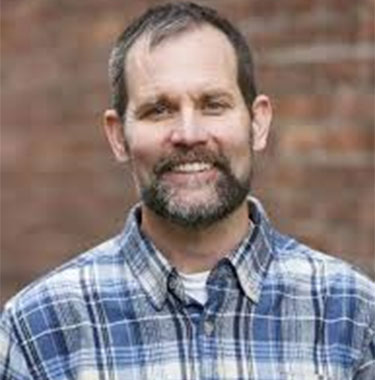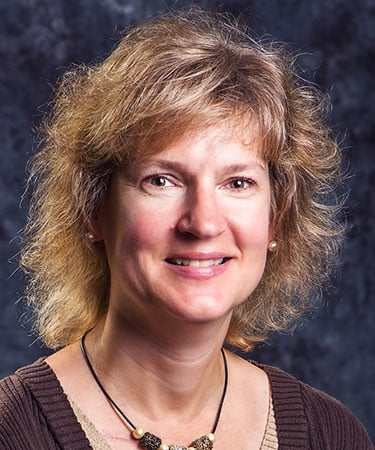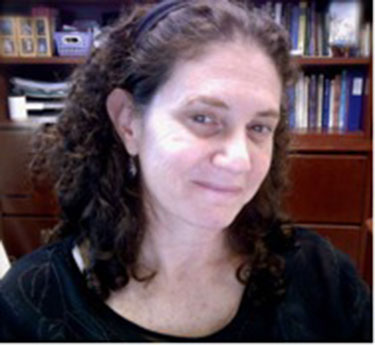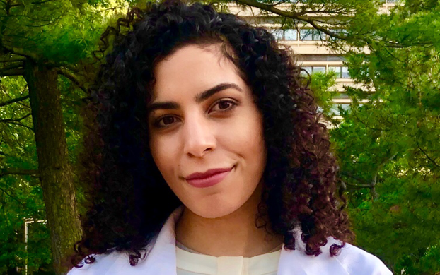If you attended APTA Combined Sections Meeting in San Antonio, you probably came away with plenty of new insights, inspirations, and memories of good times. Couldn't make it? You still have a chance to take part through on-demand sessions available for viewing during the month of March. Sign up by March 11 to get access to more than 100 sessions across a range of topics. (And mark your calendar for APTA CSM 2023 in San Diego Feb 22-25.)
To keep that APTA CSM spirit going, we asked several members who attended the conference to share their top picks — what inspired them, what was cool, their top session, and more. Here's what they had to say (Note: links are provided for sessions available in the on-demand package).
Mike Studer, PT, DPT, MHS, FAPTA
 Full-time clinician in Oregon; adjunct professor, Oregon State University DPT program, and assists with the Neuroconsortium (multisite neurologic residency collaboration).
Full-time clinician in Oregon; adjunct professor, Oregon State University DPT program, and assists with the Neuroconsortium (multisite neurologic residency collaboration).
The most dynamic speaker I saw was …
… Wendy Romney, PT, PhD, in her presentation about PTs and knowledge brokers in our efforts to translate knowledge into action ("Context Matters: Planning, Implementing, and Sustaining Practice Change," parts 1 and 2).
The coolest thing I learned was …
… The 4-Element Movement System Model, which was presented by Shaliesh Kantak, PT, PhD, and colleagues ("The Four-Element Movement System Model To Guide Physical Therapy Education, Practice, and Research" — available as part of APTA CSM On Demand in March). This paradigm, dividing the movement systems into force, movement, energy, and motor control, was presented in an effort to continue to allow this paradigm to be both more intuitive and measurable.
My top session was …
… "Persistent Postural Perceptual Dizziness: Navigating Waters of Uncertainty." I always learn many things that are practical and translatable from Janene Holmberg, PT, DPT, the presenter of this session. Again this year, she did not disappoint.
One thing I learned that I plan to put into practice is …
… from Rob Panariello, PT, in "Beyond Limb Symmetry: Performance Standards for Lower Extremity Rehabilitation and Return to Play in Sports (available as part of APTA CSM On Demand in March)." Rob reminded us that people operating at 90%-95% of their 1RM are safe because it is below the level of strain that they can manage (among other reasons). I was reminded that people need to push their critical strength and be compelled to recruit all of the available mm. fibers at times, for muscular, neurologic, noncontractile, and surrounding-area improvement (stabilization above/below, contralateral, etc.).
Tina Stoeckmann, PT, DSc, MA
 Faculty, Marquette University DPT program, NeuroRecovery Clinic therapist, and neurologic PT residency program academic coordinator.
Faculty, Marquette University DPT program, NeuroRecovery Clinic therapist, and neurologic PT residency program academic coordinator.
The most dynamic speaker I saw was …
… Kerri Sowers, PT, DPT, PhD. Kerri had great emotive cases in her presentation "Clearing the Fog: Navigating Cognitive Decline After Treatment for COVID-19, Immune-Based Disorders and Cancer."
The most intriguing thing I learned was …
… A surprising number of attendees at the "Complex Nerve Injuries and Neuromuscular Disease in COVID-19 Survivors: A Case Series" talk observed that there seemed to be an L-sided preference for neuromuscular involvement in their patients. The presenters reflected on it and agreed that once they thought about it, it was their experience as well. Everyone was puzzled.
My top session was …
"Complex Nerve Injuries and Neuromuscular Disease in COVID-19 Survivors: A Case Series."
One thing I learned that I plan to put into practice is …
… to ask my patients if they are ready to exercise, what they think they can accomplish, address their self-identified barriers, and adjust my HEP and conversation according to their responses, rather than just “giving” them my standard exercises ("Clearing the Fog: Navigating Cognitive Decline After Treatment for COVID-19, Immune-Based Disorders and Cancer").
Judy Deutsch, PT, PhD, FAPTA
 Professor and director, RiVERS Lab, Rutgers University; and recipient of the HPA Catalyst Award for Technology and Innovation.
Professor and director, RiVERS Lab, Rutgers University; and recipient of the HPA Catalyst Award for Technology and Innovation.
The most dynamic speaker I saw was …
… Anson Brennan Rosenfeldt, PT, DPT, MBA ("Community-Based Cycling Class Promotes Exercise Adherence and Improves Disease Symptoms in Individuals With Parkinson Disease").
The coolest thing I learned was …
… that it may be possible to track inflammation as a marker for health using a Garmin wearable sensor ("Applying Wearable Technology and Remote Monitoring To Manage Acute Distress and Improve Population Health").
My top session was …
"Telehealth in Physical Therapy: Developing an APTA International Clinical Practice Guideline."
One thing I learned that I plan to put into practice is …
… bicycling at a high cadence has health benefits for people with PD ("Community-Based Cycling Class Promotes Exercise Adherence and Improves Disease Symptoms in Individuals With Parkinson Disease").
Mercedes Aguirre Valenzuela, PT, DPT
 New Jersey-based early-intervention and school-based PT.
New Jersey-based early-intervention and school-based PT.
The most dynamic speaker I saw was …
… the parent speakers in "Putting Family at the Center of Family-Centered Care: Patient and Clinician Perspectives and Communication Strategies." Their perspectives were so valuable, and I was grateful to learn from them.
The coolest thing I learned was …
… the first people of San Antonio were the Tonkawa and Payaya peoples of the Coahuiltecan band. There was a land acknowledgement in the main entrance of the convention center for attendees interested in learning more.
My top session was …
… "DEI Talks: Dismantling Ableism and Promoting Accessibility and Inclusion in the Physical Therapy Profession."
One thing I learned that I plan to put into practice is …
… becoming aware of my own biases and growing my allyship for the disability community.